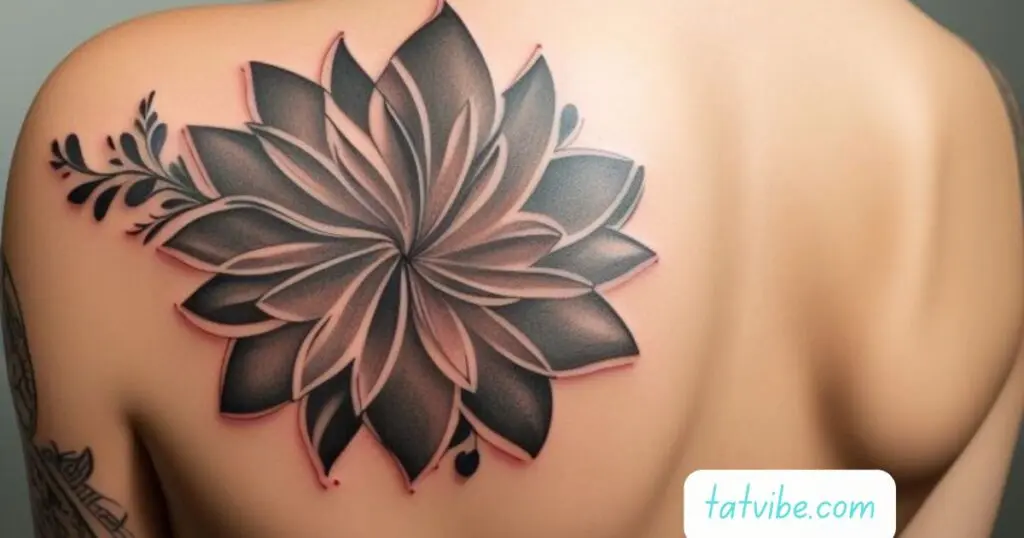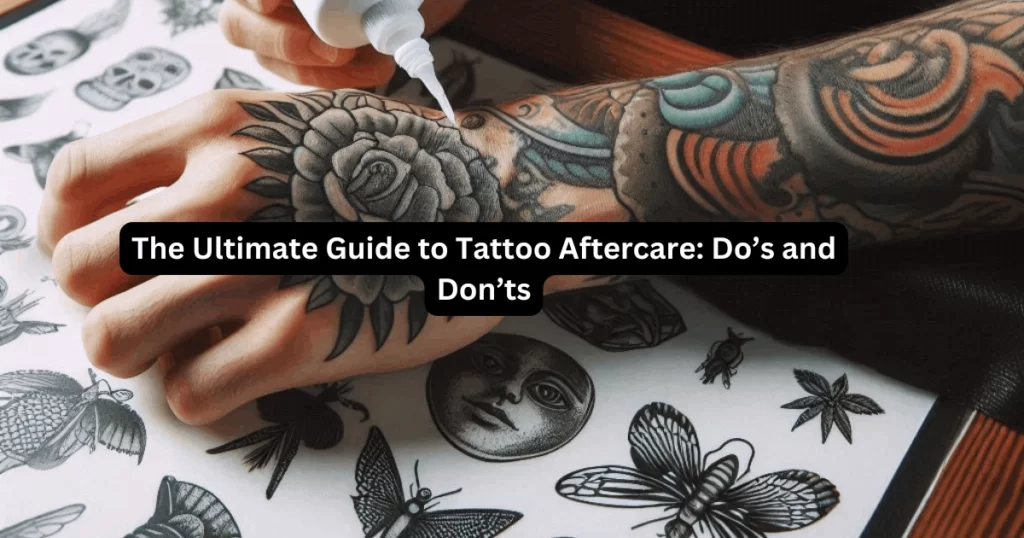Caring for a new tattoo is important to ensure proper healing and maintain the design’s quality. The right cleanser can make a big difference. Mild, fragrance-free, and alcohol-free cleansers are safe for new tattoos.
This article will explain why these types of cleansers work best and provide tips for keeping your tattoo clean during the healing process.
Why Mild Cleansers Are Best
Your skin is sensitive after getting a tattoo. Tattooing breaks the skin, making it more prone to infection. Harsh soaps or cleansers can cause irritation, dryness, and even damage the ink. That’s why using a mild, gentle cleanser is key.
Look for cleansers that are fragrance-free, hypoallergenic, and alcohol-free. Fragrances and alcohol can cause irritation and slow healing. Some common gentle cleansers that work well are unscented antibacterial soaps, baby soaps, and cleansers specifically made for tattoos.
Fragrance-Free Cleansers Are Safe for Tattoos
Fragrance can cause allergic reactions or irritation, especially on broken skin. New tattoos need to stay clean, but they also need time to heal without extra stress. That’s why choosing cleansers that do not contain perfumes or dyes is important.
Fragrance-free cleansers are typically less harsh, making them ideal for cleaning sensitive areas like fresh tattoos. Many tattoo artists recommend fragrance-free products to avoid complications during healing.
Alcohol-Free Cleansers Prevent Dryness
Alcohol-based cleansers can dry out your skin, which can interfere with your tattoo’s healing. Dry skin can cause scabbing and flaking, which may lead to uneven healing or faded ink. Using an alcohol-free cleanser will help maintain moisture in your skin, reducing the risk of these issues.
Avoid hand sanitizers and other products containing alcohol. Stick to gentle cleansers that hydrate while they clean.
Ingredients to Avoid in Cleansers for Tattoos
When shopping for a cleanser, read the ingredients carefully. Some ingredients can cause irritation or slow the healing process. Avoid cleansers with the following:
- Sodium Lauryl Sulfate (SLS): SLS is a harsh detergent found in many soaps. It can irritate your tattoo and strip the skin of natural oils.
- Parabens: Some people are sensitive to parabens, which are preservatives used in skincare products.
- Dyes: Artificial dyes can irritate sensitive skin and may cause allergic reactions.
- Fragrances: As mentioned earlier, fragrances can cause irritation and allergic reactions on fresh tattoos.
Stick with simple, natural ingredients when possible.
When and How to Clean Your New Tattoo
Proper cleaning is an important part of tattoo aftercare. Follow these steps to keep your new tattoo clean and help it heal properly:
- Wash your hands first: Always clean your hands before touching your tattoo to avoid transferring bacteria.
- Use lukewarm water: Hot water can irritate your skin and make your tattoo more sensitive. Use lukewarm water to rinse your tattoo.
- Apply a small amount of cleanser: You don’t need much. Gently lather the cleanser on your hands and apply it to your tattoo.
- Be gentle: Don’t scrub. Gently pat your skin with your fingertips to clean it.
- Rinse thoroughly: Make sure to remove all soap from your skin. Any residue can cause irritation.
- Pat dry: Use a clean, soft towel to gently pat your tattoo dry. Avoid rubbing the area.
How Often Should You Clean Your Tattoo?
During the first few days after getting your tattoo, clean it 2-3 times a day. After that, you can clean it once a day, or as needed. Overwashing can dry out the skin, so it’s important to find a balance. If you notice any redness, irritation, or other signs of infection, contact your tattoo artist or a healthcare professional.
Recommended Cleansers for New Tattoos
While many mild, fragrance-free cleansers are available, here are a few products that are commonly recommended by tattoo artists:
- Cetaphil Gentle Skin Cleanser: A mild, soap-free cleanser that is good for sensitive skin.
- Dove Unscented Soap: This unscented soap is moisturizing and non-irritating.
- Dial Gold Antibacterial Soap: Some artists recommend this for its antibacterial properties, but make sure to get the fragrance-free version.
Always ask your tattoo artist for their specific recommendations. Every person’s skin is different, and what works for one person may not work for another.
What to Avoid After Getting a Tattoo
In addition to using the right cleanser, there are a few things you should avoid during the healing process:
- Do not soak your tattoo: Avoid swimming or soaking in baths. Too much water exposure can lead to infection or cause ink to fade.
- Avoid direct sunlight: Sun exposure can damage your new tattoo and cause the ink to fade. Keep your tattoo covered or use sunscreen once it has fully healed.
- Don’t pick at scabs: It’s normal for your tattoo to scab as it heals, but picking at the scabs can cause scars or loss of color in the tattoo.
FAQs: Safe Cleansers for New Tattoos
- Can I use antibacterial hand soap to clean my new tattoo?
While some antibacterial hand soaps are safe for new tattoos, it’s important to make sure the soap is fragrance-free and mild. Avoid any antibacterial soaps with added scents, dyes, or alcohol, as these ingredients can irritate your tattoo and slow healing. - Is it safe to use a foaming cleanser on a fresh tattoo?
Foaming cleansers can be safe if they are mild, fragrance-free, and alcohol-free. However, it’s important to ensure that the cleanser doesn’t dry out your skin. Foaming cleansers with sulfates can be too harsh for a healing tattoo, so check the ingredients first. - Can I use a makeup remover wipe to clean my tattoo?
Makeup remover wipes are not recommended for cleaning a new tattoo. They often contain harsh chemicals, alcohol, or fragrances that can irritate your tattoo and dry out your skin. Stick to gentle, unscented soap and water. - Is it okay to use coconut oil or natural oils to clean my tattoo?
Natural oils like coconut oil can help moisturize a healing tattoo, but they should not be used as a cleanser. Oils do not have the cleansing properties necessary to remove bacteria or dirt from the tattooed area. Use a proper mild cleanser and apply oils or tattoo-safe ointments for moisture after cleaning. - How long should I use a special cleanser on my new tattoo?
You should continue using a mild, fragrance-free cleanser for the duration of your tattoo’s healing process, which usually lasts around 2-4 weeks. After your tattoo is fully healed, you can return to using your regular skin-care products, as long as they don’t irritate the tattooed skin.
Caring for your new tattoo starts with choosing the right cleanser. Stick with mild, fragrance-free, and alcohol-free products to avoid irritation and promote healing. Following these simple steps will help ensure your tattoo heals properly and looks its best for years to come.




